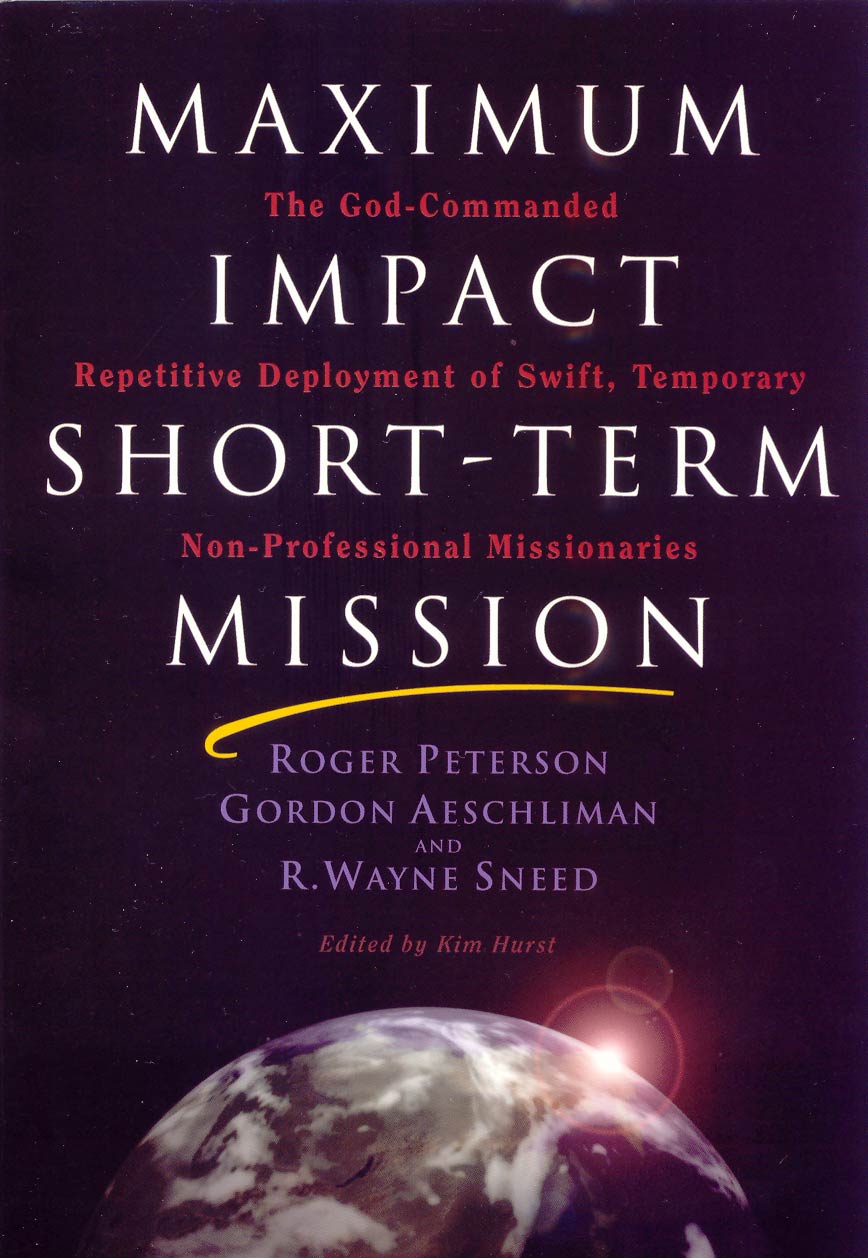AN APPEAL FOR SUPPORT
We invite you to support this ministry. Contributions in support of this Ministry are tax-deductible. Kindly send your support to
Bethany International
6820 Auto Club Road, Suite A
Bloomington, MN 55438.
Please write Thirumalai's Ministry in the memo column. Also, please buy your books using the AMAZON link given in every page. Even the smallest contribution will help in running this journal.
BOOKS FOR YOU TO READ
AND DOWNLOAD
- SO, WHAT WILL YOU LEAVE BEHIND? LeRoy Dugan
- Standing on the Shoulders of Giants
Learning From Those Who Preceded Us in Faith Pastor Dave Strem with James Skeen - SAVED BY HIS LIFE
Understanding the Book of Romans Pastor Harold Brokke - MARRIAGE -- Building Strong Lives and Strong Relationships Pastor Dave Strem with James Skeen
- HELP THE HURTING, SUPPORT THE LAME!
Lessons from Isaiah by Pastor Dave Strem, and James Skeen - WARNINGS FOR AMERICA
Lessons from Isaiah by Pastor Dave Strem with James Skeen - THE SPIRIT'S PASSION
A Book of Christ-centered Poems and Free Verse by Pastor Harold Brokke - THE LAW IS HOLY by Pastor Harold Brokke
- WORLD MISSIONS - A HISTORICAL PERSPECTIVE
by Tom Shetler - LIVE A VICTORIOUS LIFE IN THE SHADOW OF THE CROSS! : INTERCESSION, WARFARE, AND DELIVERANCE
by Pastor Ted Hegre. - MISSING PIECES: THE INCOMPLETE GOSPEL by LeRoy Dugan
- LUTHER'S PROTEST by M. S. Thirumalai
- TELL ME IT'S TRUE ...
A Book Of Poems by Stan Schmidt - SOMETHING IS GREATER THAN WONDERS...
A Book Of Poems & Free Verses by Pastor Harold Brokke - GEMS OF TRUTH by Stan Schmidt
- WHERE IN THE WORLD IS GOD? by Alec Brooks
- LIGHT OF THE WORLD, an Original Screenplay by W. G. Orr
BACK ISSUES
- NOVEMBER 2001
- DECEMBER 2001
- JANUARY 2002
- FEBRUARY 2002
- MARCH 2002
- APRIL 2002
- MAY 2002
- DECEMBER 2002
- JANUARY 2003
- FEBRUARY 2003
- MARCH 2003
- APRIL 2003
- MAY 2003
- JUNE 2003
- JULY 2003
- AUGUST 2003
- SEPTEMBER 2003
- OCTOBER 2003
- NOVEMBER 2003
- DECEMBER 2003
- JANUARY 2004
- FEBRUARY 2004
- MARCH 2004
- APRIL 2004
- MAY 2004
- JUNE 2004
- JULY 2004
SEND YOUR ARTICLES FOR PUBLICATION IN Christian Literature and Living.
- E-mail your articles and book-length reports to thirumalai@bethfel.org or send it by regular mail in a floppy disk to:
M. S. Thirumalai, Ph.D.
6820 Auto Club Road, Suite C
Bloomington, MN 55438 USA - Your articles and booklength reports should be written, preferably, following the MLA Stylesheet.
- The Editorial Board has the right to accept, reject, or suggest modifications to the articles submitted for publication, and to make suitable stylistic adjustments. High quality, academic integrity, ethics, and morals are expected from the authors and discussants.
Copyright © 2001
M. S. Thirumalai
WALKING IN OBEDIENCE
Ed Holt
WHAT IS SINCERITY? BE WITHOUT WAX!
The word "sincere" comes from two Latin words. The first is "sine," the second is "cera." It means "to be without wax."
There were some Roman sculptors that when they would take their marble and create their sculpture they would take wax and put it in the cracks and present it as one that was perfectly carved. There were other sculptors who wanted to be upright, forthright with their clients and so whenever they would take a piece of marble and create a sculpture, they would say that it was "sine cera," "without wax." When you and I want to walk in obedience with God, when you and I want to enjoy fellowship with God, we must be "sine cera." We must be honest, sincere, with God, others, and ourselves.
KNOWING GOD IS OBEYING HIM
This paper is going to focus on walking in obedience. Our main passage of Scripture is 1 John chapter 2. Beginning in verse 3.
We know that we have come to know him if we obey his commands. The man who says I know him but does not do what he commands is a liar and the truth is not in him. But if anyone obeys his word, God's love is truly made complete in him. This is how we know we are in him. Whoever claims to live in him must walk as Jesus did. Dear friends, I am not writing you a new command but an old one which you have had since the beginning. This old command is the message that you have heard yet I am writing you a new command. Its truth is seen in him and you because the darkness is passing away and the true light is already shining. Anyone who claims to be in the light but hates his brother is still in the darkness. Whoever loves his brother lives in the light and there is nothing in him to make him stumble. But whoever hates his brother is in the darkness and walks around in the darkness. He does not know where he is going because the darkness has blinded him.
THE THREE TESTS
If you and I want to know that we are walking in fellowship with God, then we must walk in obedience. In this passage of Scripture, John gives three tests that we can use to gauge our fellowship with God.
THE FIRST TEST: TEST OF ATTITUDE
The first test is the test of attitude.
Verse 3: "We know that we have come to know him if we obey his commands." Jesus said it this way in John 14:15, "If you love me, you will obey what I command." Now I have to ask the question, "Why?"
The text says that "if you love me, you will keep my commands." But what does that look like? To help us understand John's point, we must make some distinctions.
Three are three reasons individuals obey commands or directives.
The first reason is because they have to. It is much like a relationship between slave and master. There are severe consequences if this individual does not obey.
The second reason an individual or a group of people will obey is because they need to. This is much like an employee-employer relationship. And if this individual wants to get a paycheck to feed the family, to keep the lights on, to have a roof over his or her head, they need to obey the workplace policies.
The third reason that individuals obey is because they want to. This is much like Christ when He obeyed the Father even during difficult circumstances. Remember in the Garden of Gethsemane where Jesus was praying and He said, "Lord, take this cup from me? Nevertheless not my will but your will be done." Jesus is an example of an "I want to obey" attitude.
Do you have this "I want to obey" attitude toward your heavenly Father? Do you have the desire to abide with Him? If you do not, you need to acquire it because you will not grow spiritually without it!
OUR PARENTING EXPERIENCE
Cheryl and I have worked pretty hard trying to get our boys to do first-time obedience. Those of you who are grandparents or parents or aunts and uncles understand that we work a lifetime to try to get our children to obey when they should. We do not pay our children an allowance to pick up, clean, or just do stuff that we do on a daily basis to maintain a house because we believe that since they are part of our family they should contribute. They dirty the dishes, they dirty the clothes, they dirty the house, they can help clean them. They have to. And when we tell them it is time to clean they may rant and rave but we insist they do it. They do not have a choice.
One of the things we do in our house is that the children do not get paid for doing chores, but there are some things we will pay them to do so they can earn money. Levi has begun to understand the value of a quarter. And so he will come out with his little glasses and shoes and be ready to weed whack to earn money. He does this because he wants the money. And that is fine. But I long for the day that he will do it because he wants to, just because he wants to help his dad. That is like what John is saying. We need to cultivate the desire to "want to obey" God. Let me ask you, do you have a "want to" desire? Do you "want" to obey the commands of the Lord? This is the first test that John has given to us that we can use to gauge our fellowship with God.
There are times in our lives when we respond to God out of a "have to" attitude. And there are other times that we respond because we know we "need to." This response is reward-driven. But God wants us to obey Him because we "want to." He wants us to respond to Him in a way that is love-driven. Loving the Lord our God includes "want to" obedience!
THE SECOND TEST: TEST OF ACTION
Not only does John give us the test of attitude, but he gives us a second test that we can use to gauge our fellowship with God. It is the test of action.
You see this in verses 7 and 8:
I am not writing you a new command but an old one which you have had since the beginning. The old command is a message that you have heard. Yet I am writing you a new command. Its truth is seen in him and you because the darkness is passing and the true light is already shining.
John is not confused. He says that this command is an old command because it is recorded in the Old Testament. "You already know it," he is saying. It is a Mosaic command.
Two passages of Scripture are important. The first one is Leviticus 19:18. And it says this, "Do not seek revenge or bear a grudge against one another, but love your neighbor as yourself." The other is found in Deuteronomy 6. It is called the "shemah." Many of us know it, but may not know it as the "shemah." "Hear oh Israel. The Lord our God is one. Love the Lord God with all your heart, with all your soul, and with all your strength."
John is saying, "I am not writing you a new command. You know it. It is an old command." And part of his audience would have understood this, but yet he turns around in verse 8 and he says, "Yet I am writing you a new command." This new command is not new in time.
In John 13:14 Jesus says, "So now I am giving you a new command." "Love each other. Just as I have loved you, so love each other." But that is not new. It is not new in time but is definitely new in its meaning and intent. It was foreign to how they thought. It was foreign to their approach to God. Jesus wants us to understand that He was persecuted by fulfilling this command. It was an Old Testament command, yet He was being persecuted because it looked different than what they were used to. Their pride and prejudices blinded them to Scripture's true meaning.
Mark Twain encountered a ruthless businessman in Boston. And this ruthless businessman said to him, "You know what? There is nothing that I cannot do. There is no one that will stand in my way and keep me from accomplishing what I want to accomplish." And this individual said, "In fact, I want to go to the Holy Lands and find Mt. Sinai and climb to the top of that mountain and scream at the top of my lungs the Ten Commandments." Unimpressed by this, Mark Twain said to this man, "I have a better idea. Stay here in Boston and keep the Ten Commandments." That is what John is talking about. Doing what we know to be God's will!
The two great commandments, "Love the Lord God with all your heart, soul, mind, strength" and "Love others as yourself" sum up every command God has given. This "loving others" is the core of ministering to people. If you are a believer, God has gifted you with a spiritual gift. And you need to be exercising that spiritual gift.
In the Great Commission Jesus said, "Go." It literally means "as you are going." "As you are going," tell us about Jesus. Telling people about Christ during the course of everyday life. It is a command. "Go and make disciples." It is fellowship. Fellowship is sharing life experiences with someone. When things are tough, do people come alongside of you and help you through difficult times? Do they rejoice with you during the good times? That is fellowship. Are you having fellowship with others? Are you discipling anyone?
John gives us tests that we can use to gauge our fellowship with Him. The first test was a test of attitude. The second test was a test of action.
THE THIRD TEST: TEST OF AFFECTION
This third test is the test of affection.
Verses 9-11:
"Anyone who claims to be in the light but hates his brother, is still in the darkness. Whoever loves his brother, lives in the light and there is nothing in him to make him stumble. But whoever hates his brother is in the darkness and walks around in the darkness. He does not know where he is going because the darkness has blinded him."
There are three things that I want you to see from this passage.
1. The word "hate" does not mean a mere emotional outpouring, although there is emotion attached to it. This word "hate" means "to detest, to abhor." It is an attitude that causes people to ignore or despise others and to treat them as irritants or enemies. Using that definition, do you hate? Are there people you despise? Are there people that irritate you? This is not talking about some irritating habit or action someone might have that irritates, but does the person irritate you to the point of dislike, even hatred. Just because you do not get along with someone does not mean that you hate him or her.
To clash with others seems to be inevitable with so many types of people in this world. But it goes beyond mere clashing when we wish ill upon someone. This wishing ill is hatred. You want something bad to happen to the other person. If you find yourself wishing ill or harm to someone you need to go to God for cleansing so that you can start loving again.
2. Contrasting the attitude of hatred is "love." This particular word in the Greek is "agape." In American we say that we love cheeseburgers, puppies, candy, chocolate, God, our wife, our husband. We use it flippantly, making little distinction in how we use the word. But in the Greek, there are three words that we translate as "love." The three words are eros, phileo, and agape. Eros's focus is on sexual love and togetherness. Phileo's focus is on friendship, or brotherly affection. Agape's focus is that sacrificial love that bestows benefits on both friends and enemies. It is a special kind of caring. It is good done even to those whom are not are friends. It is a divine love best typified by what Christ did at Calvary--"He died for us while we were yet sinners."
Do you remember the story in the New Testament where Jesus takes Peter aside and instructs him to feed His sheep? Jesus asked Peter three times, "Peter, do you love me?" The first time Peter's answer was, "Yes, you know I love you. You know all things." The second time Peter said, "Yes, Lord, I love you." After Jesus asked him yet a third time, Peter gets a little upset and responds, "Yes, Lord. You know I love you. You know all things." Then Jesus said, "Then feed my sheep."
Knowing the Greek words in this passage add insight into the nuances of this encounter. The first two times Jesus asked Peter the "Do you love me" question, He used the word "agape." "Do you 'agape' me?" And Peter's response both times was, "Lord, you know I 'phileo' you." The third time Jesus used the word for a lesser love: "Peter, do you 'phileo' me?" And Peter says, "You know I 'phileo' you."
Peter and Jesus recognized that at this time in Peter's life he regarded Jesus as a good, maybe even a supreme, friend. And that is good to see Jesus as our friend. But Jesus wanted more from Peter, and He wants more from us. Peter grew to love God in Christ with the supreme type of love--agape. Peter died a martyr for Jesus hanging upsidedown on a cross of crucifixion. He gave his life that the truth about Jesus might spread throughout the world.
3. I said there were three things I wanted you to see from this passage. The third thing centers on the word "but." "Whoever loves his brother lives in the light and there is nothing in him to make him stumble, but whoever hates his brother…." Hating leads to stumbling. Hating is bad for the soul! Hating leads to other sins and violations of God's Word. But if we love, God's light is in us and not only is our fellowship with God sweet but our souls are protected from the corrosive affects of sin.
There was a 13th century historian who wrote about King Frederick II, who carried out a crude type of social experiment. He wanted to see what happened to children if all maternal affection was withheld from them. He kept people away from these children. Certain individuals could bathe the children, but there was no maternal suckling or attachment. There were no loving words expressed to them. He was trying to find out what language these children would speak. Would they speak Hebrew, what he called the oldest language in the world? Would they speak Greek or Latin or Arabic? Or, would they speak the language of their parents? But he was never able to conclude his research. Every single child died. More modern "experiments" have also shown the same result. If children are given little or no affection, they suffer physical and psychological damage, some even die.
GIVING AND RECEIVING LOVE
Spiritually, our souls thrive on giving and receiving love. Some of the most miserable people are those who are so focused on themselves that they cannot love others. Equally miserable people are those who cannot receive love. The love cycle requires both a giver and a receiver. The giver needs someone to receive. The receiver needs someone to give. Part of the task of loving is getting the other to receive. Those who cannot receive cannot be loved.
We were made by God to focus more on the world around us than on ourselves. Contemplating God's creation and His works throughout history is an outward activity. Loving others is also an outward activity. It is a good thing to know that someone cares about us. God wants His people to care about others. He does not want anyone to wilt and die emotionally because there was no one present to love them.
Do you claim to have God's truth in you? Are you walking in obedience? Are you harboring anger towards another brother or sister in Christ? Are they irritants to you? Or, when you go to the marketplace, when you go to the school, when you find yourself in the locker room, do you exemplify obedience? Do you abide in the Father as Jesus did?
ARE YOU A FRIEND OF JESUS?
Dr. R.A. Torrey talked about a time when someone wrote to him and let him know that there was going to be a minister's child in his congregation who may not be a Christian. During his preaching, Dr. Torrey located the young man. After concluding his message, he rushed to a door where he thought this young man was going to exit. He greeted a few individuals and then this young man approached to greet him. Dr. Torrey greeted him by saying, "Good evening. I'm so glad to see you. Are you a friend of Jesus?" "Yes," the young man replied. "I consider myself a friend of Jesus." Then Dr. Torrey countered, "Jesus replied, you are my friends if you do whatever I command." The young man's eyes fell to the floor. "If those are the conditions, I guess I'm not." I have to ask you the same question. Are you a friend of Jesus?
Henry Blackabie wrote, "What you do, reveals what you believe."
OBEDIENCE IS A FORM OF WORSHIP
Pure obedience is not just something that we do because we have to or because we need to. Pure obedience is a form of worship. We offer it to the Lord as a sacrifice. Willfully choosing to walk in obedience, to walk in the light. God desires for us to walk with Him. He desires for us to obey Him, not out of fear, not out of reward, but out of love. With the myriad of choices this world offers to satisfy our souls, God is pleased when we chose Him above all else. "We choose Him because He first chose us." You must receive God's love in order for it to do you any good. It has been given, are you willing to receive it? If you have received, John says that your life will exhibit the light of love and obedience toward the Lord Jesus Christ!
CLICK HERE FOR PRINTER-FRIENDLY VERSION
SELF-LOVE, SELFISHNESS, AND JESUS' EXAMPLE | OF DREAMS AND ETERNAL THINGS | THE CHRISTIAN DECLARATION OF INDEPENDENCE | EVANGELISM THROUGH THE FIRST LEPROSY CLINIC IN GUINEA-BISSAU - A Leaf from the Notes of Herb and Ruth Billman | SUCCESS - GOD'S MEASURE OR OUR'S? | LEARN ENGLISH TALKING TO JESUS! - A Review of a Textbook Intended to Teach English | HOW TO SURVIVE IN A PRESSURE PACKED WORLD | WALKING IN OBEDIENCE | SO, WHAT WILL YOU LEAVE BEHIND? | HOME PAGE | CONTACT EDITOR
Ed Holt
E-mail: trinityedholt@aol.com
Send your articles
as an attachment
to your e-mail to
thirumalai@bethfel.org.









